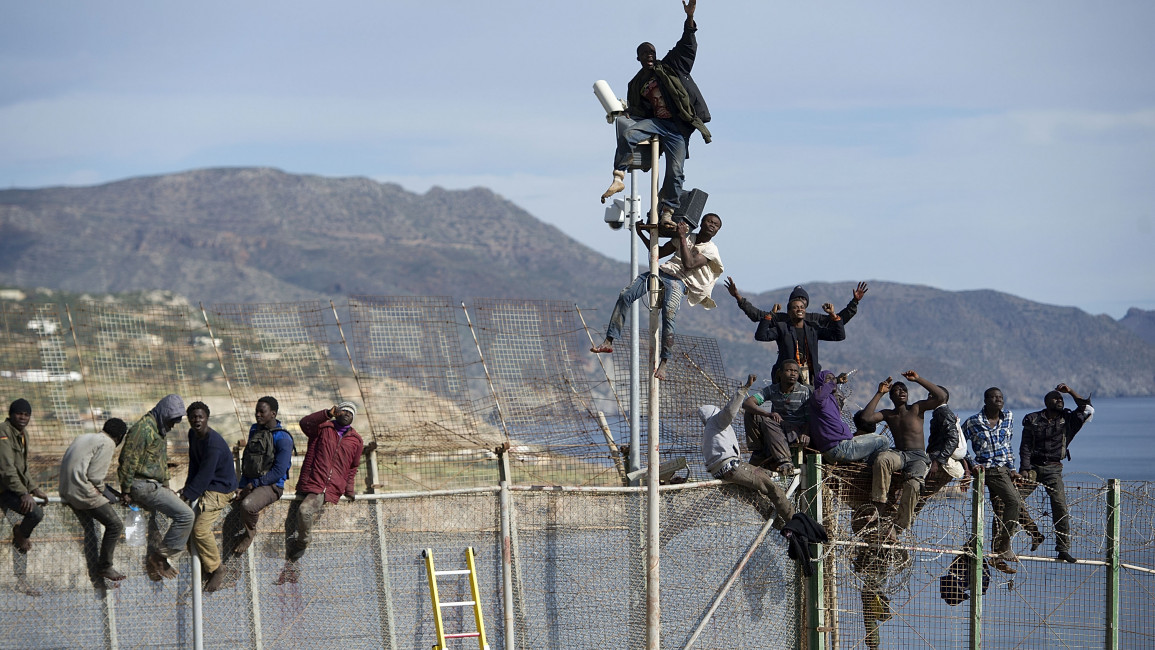Morocco, Spain 'contributed' to migrant deaths: Amnesty
Amnesty International on Tuesday said Spanish and Moroccan authorities contributed to the deaths of tens of people who attempted to cross into Spain's North African enclave of Melilla in June.
The human rights organisation accused Madrid and Rabat of "excessive use of force" and an "abject failure" to provide the truth about what occurred.
Nearly 20,000 migrants, many from Sudan, stormed the metres-high fence that seals off Melilla from Morocco on June 24. Clashes with police ensued, in which several migrants were crushed to death and others died from falling.
The death toll -- at least 23 according to Morocco, at least 37 according to Amnesty and independent experts -- was the worst in years of attempted migrant crossings into Melilla and Ceuta.
The frontier between Morocco and the two Spanish enclaves are the European Union's only land borders on the African continent.
"The methods used by Moroccan and Spanish authorities at the border crossing known as 'Barrio Chino' contributed to the deaths of at least 37 people and to injuries to dozens more," Amnesty said in a report.
Amnesty analysed videos and satellite images, and spoke to numerous migrants who were present at the border when it was stormed.
"Some of the actions by Spanish and Moroccan officials ... may amount to breaches of the right to be free from torture and other ill-treatment," Amnesty said.
These included "beating people who were already restrained or unresponsive due to injury, denying emergency medical assistance to those injured, repeated use of tear gas against people who have no way of escape and are in a confined space".
"At this dismal six-month anniversary, the Spanish and Moroccan authorities continue to deny any responsibility for the carnage at Melilla," said Amnesty International secretary general Agnes Callamard.
"There is a growing mountain of evidence of serious and multiple human rights violations... This smacks of a cover-up and racism."
Independent experts appointed by the United Nations Human Rights Council said in October at least 37 people had died, and decried an "alarming" lack of accountability, from both Morocco and Spain.
Investigations published in November by the BBC and European media consortium Lighthouse Reports denounced brutality by Moroccan forces and questioned the Spanish forces' actions.
The probes concluded that at least one migrant died on Spanish territory, which Spain's interior minister has repeatedly denied.
The Spanish ombudsman and the country's public prosecutor have also been investigating the tragedy.
In a letter sent on Friday to several NGOs and seen by AFP, the ombudsman said that explanations given by the interior ministry had "not been sufficient".


![President Pezeshkian has denounced Israel's attacks on Lebanon [Getty]](/sites/default/files/styles/image_684x385/public/2173482924.jpeg?h=a5f2f23a&itok=q3evVtko)



 Follow the Middle East's top stories in English at The New Arab on Google News
Follow the Middle East's top stories in English at The New Arab on Google News


